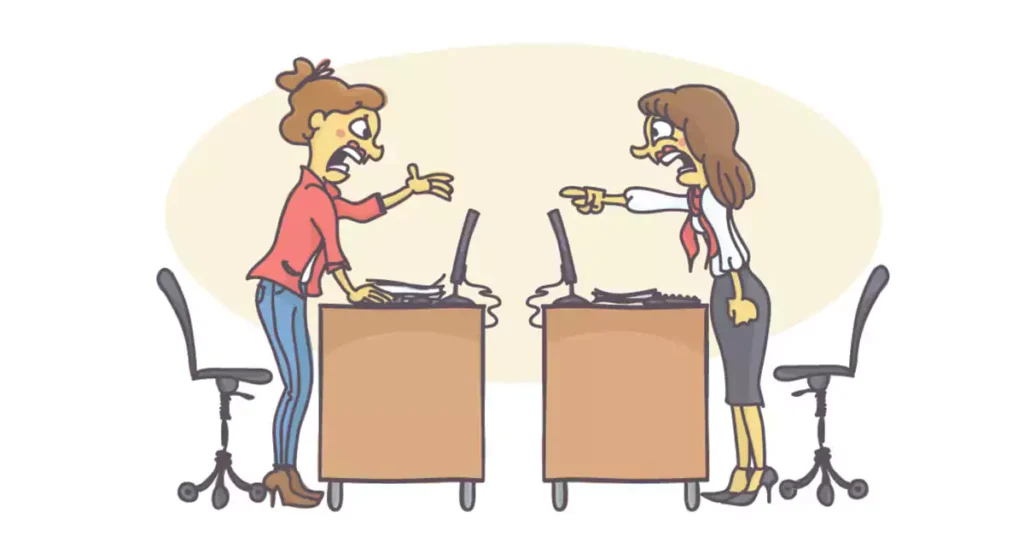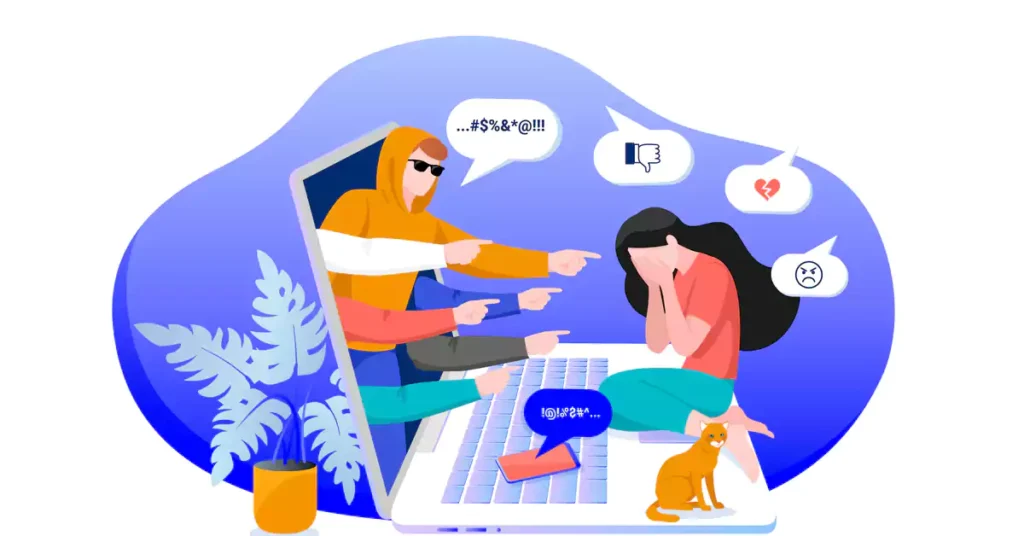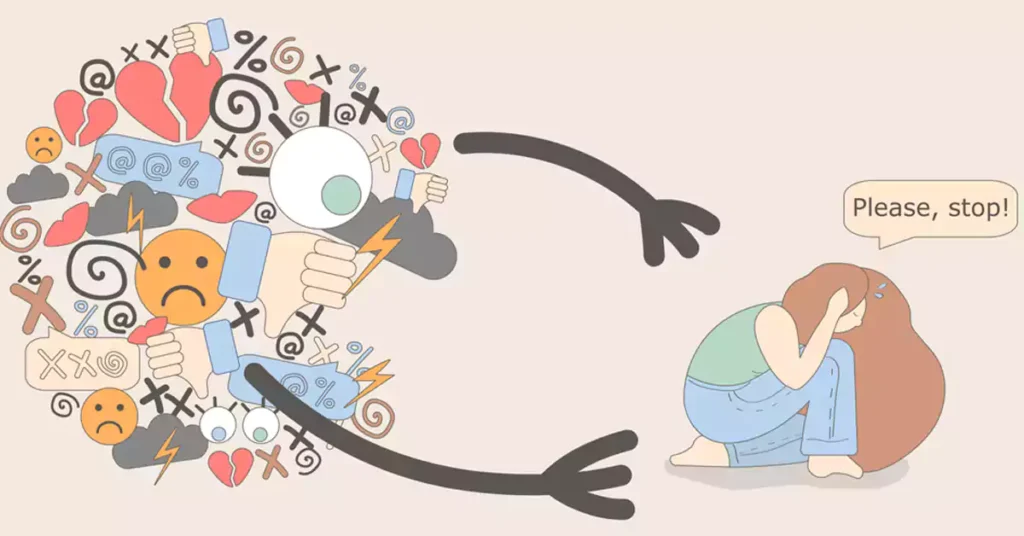Social media has had several effects on humanity, Let’s talk about 10 reasons why social media is harmful to your career.
It may appear that social media is your personal network of friends and followers, where you can share and post anything that is on your mind at the time. This idea, however, is flawed because your “private” activities are visible to everyone, including potential employers.
According to studies, 90% of employers evaluate a candidate’s social media activity when making a hiring decision, and 79% of HRs have rejected a prospect because of what they saw on their social media.
As a result, it’s only logical to pay attention to our current and previous social media behavior and avoid allowing our social media accounts to hurt our professional chances.
By all accounts, social networking should make your job hunt easier. You may connect with employers, employees, recruiters, HR leaders, peers, and commentators in real-time. You may discover the ins and outs of the businesses that interest you the most almost effortlessly.
With a few simple clicks, you may disseminate your résumé, LinkedIn profile, personal website, and more to the people, broadening your personal social media “brand.”
But what if you’re utilizing social media in the incorrect manner? What if your emotional or political outburst, which you uploaded for your “friends” to read, gets up in the newsfeed of your present or potential employer?
“Your social media presence—indeed, your entire digital footprint—is no longer just a complement to your résumé.” In The New York Times, Patrick Gillooly says, “It’s as vital as your résumé.” “Using social media in the employment process is now routine, and there’s little likelihood of going back.”
The most common medium for your virtual voice is social media. In the internet age, it is assumed that you can be yourself and say what you are thinking — but can you? Many people’s careers or job prospects have been harmed due to what they emailed, tweeted, or posted. The digital world may be a capricious creature.
Kelly Blazek is a name you have probably heard. Her name may possibly not be familiar, but her story is certainly worth considering. Blazek, the founder of Cleveland Job Bank, responded angrily to a LinkedIn invitation received by a graduate student. Blazek became a shining example of what not to do on social media after his response went viral.
It is not simply unprofessional photos of you or filthy comments on social media that might influence how people see you and your character. It is also the small details that can determine if you are hireable or not.
If you are on social media, there is a good possibility your boss has looked you up on several occasions.
This could be to check up on you before hiring you or keep track of your professionalism while you are on the job. Can this level of social media exposure, however, have an impact on your career?
Yes, social networking can negatively impact your career, to put it bluntly. Here are 10 ways your career goals can be stunted.
1. Public Complaining

Complaining about your boss on Facebook is perhaps the worst thing you could do on the social media platform, and it is often what catches people off-guard. Yes, venting can be an effective stress reliever, but is it really worth your job? Most likely not.
Your posts may be safe from your boss, but don’t rule out the possibility of your co-workers gossiping about you. Professionalism is necessary at all times if you have someone from work on your social media networks — better safe than sorry!
If you do have a complaint, consider it twice before posting it. You can find yourself in unfavorable seas at work in the time it takes you to publish, or you might find the aggravation has passed. The latter is a far superior choice to the former.
2. Unprofessional Language

This includes swearing, racial slurs, and other offensive languages, as well as ‘text speak.’ Employers may see you writing in a less-than-perfect style online and associate it with sloppiness in your professional life.
Correct spelling and punctuation are free; therefore, utilize them to maintain a professional online demeanor that may one day land you a job!
On the other hand, unprofessional remarks or language might be disastrous for your career. Whether it’s overtly harsh, racist, or in poor taste, your boss may consider it a negative reflection of their business.
Many employers view their employees as extensions of their brand, and misrepresenting it on social media might result in your dismissal.
If you wouldn’t say it at work, don’t say it online, according to the social media rule of thumb.
3. Plagiarism

This is not about reposting a quote from your favorite author, which is always fine as long as acknowledgment is given; rather, outright stealing someone else’s work is not.
It might be as basic as copying a famous Facebook or Twitter text message, or it might be as simple as sharing an image or artwork without crediting the artist.
Many users on social media distribute information without acknowledging the original creator on a daily basis.
It usually goes unnoticed, but if you work in the creative sector or anything comparable, doing so on your personal social network can be seen as bad form. It would be problematic for your job to translate into your professional work.
Giving credit for anything you post or share should be a standard practice because it demonstrates moral sensibility and good behavior. These are qualities that will impress any employer. You can even do it on social media.
4. Alcohol

When you are enjoying a casual glass of wine or more, you might want to think twice about blogging about your night on social media. It conveys a lack of professionalism, and if you share this stuff frequently enough, it may be thought to be harming your work performance.
Furthermore, any reference, depiction, or even liking of illegal substances can result in automatic termination.
The boss might not frown on this behavior; your boss may be notified by a customer (or typically by parents in schools, patients in hospitals, etc.). However, when it comes to social media, it is a good rule of thumb to keep alcohol and other similar substances out of the picture.
5. Nude Photos

You may believe that you have complete control over what is put on your social media sites, whether it is respectable or filthy. However, your recruiter or employer will have an unfavorable opinion of you if you post revealing or naked photos on Facebook, Twitter, or Instagram.
True, self-confidence is one of the attributes that a company looks for in a candidate. However, if you are flaunting your confidence by uploading profane images of yourself or others, your job application might as well be thrown out the window.
Furthermore, you may be reported for unethical activity as a result of these inappropriate social media posts, in addition to ruining your chances of securing a high-paying job.
6. Cyberbullying

Cyberbullying is unacceptably cruel in every way. Social media posts, including hostility or vulgarity directed towards a fellow college graduate, or any other individual, may have a negative influence on your employment prospects or current job.
While cyberbullying has the potential to ruin the victim, employers are well aware of the dangers. Therefore, expect your prospective or existing employer to investigate and determine the source of those damaging posts.
If it is shown that such posts constitute cyberbullying, it will raise doubts about you, which your employers will be fast to address.
Cyberbullying, like any other form of unethical behavior on social media, might cost you your career in the future.
7. Employer or Company Complaints

If you get the job and declare you are ready for it, be sure you are serious. Keep your feelings to yourself, especially any unhappiness you harbored when you accepted the job offer.
If your job description or compensation range falls short of your expectations, talk to your new supervisor about it. It is not only impolite to post complaints or rants about these facts; it is also unfair to your employer.
It’s ludicrous to believe that your concerns on Facebook or Twitter will go unnoticed by your bosses. Keep in mind that in the interconnected world of social media, everyone knows everyone.
A co-worker or an ex-employee will undoubtedly see it, regardless of your privacy settings. You can bet it will get to your boss faster than you can say, “I’m sorry!” Instead of reporting to work the next day, expect to get an email informing you that your job offer has been canceled.
“There is so much disinformation and uncertainty regarding ‘privacy settings on social networking sites these days,” says Brent Curves, CEO of Stir Communications Group (a web-based marketing firm in Canada). “A reasonable rule of thumb is to operate under the assumption that everything is public, period.”
If you feel obligated to say something about your job, do so without putting your employer in jeopardy. If you can’t manage to achieve that, it is probably best to stay silent and keep your work off of social media.
8. Job And Customer Complaints

Never consider working for a firm if you plan to moan about your job or customers on social media constantly. Your nasty comments about the customers you serve to reflect poorly on your firm.
Badmouthing the organization where you are currently employed may negatively impact your job prospects. However, the thing about an employee or corporate complaints is that they will eventually cost you your job. So don’t be surprised if you’re not shortlisted by other companies the next time you seek a job.
Accept your mission voluntarily if you weren’t forced to, and then get to work! If you don’t know someone, do not say anything bad about them, especially on social media.
9. Inappropriate and Profane Remarks

Indeed, we have the freedom to express ourselves online, but with that freedom comes a certain amount of responsibility.
Whether or not your actions are related to your employment, making discriminatory or disrespectful statements about others produces a terrible image. Rude, malicious, or insensitive statements reflect your character as a person, and your attitude as an employee is no exception.
This behavior will very certainly lose you your current job and jeopardize your prospects of getting a new one. Be wary of your reactions and comments on social media if you do not want your résumé to end up in the garbage. What appears to be an innocuous remark can spell the end of your career.
10. Spelling and Grammar Flaws

We are usually too ecstatic to share any important event or milestone on social media.
While proofreading them before uploading will save readers the embarrassment of a grammatical or spelling problem, did you realize that well-crafted phrases and paragraphs can have a significant and long-term impact on your professional career?
Your posts with misspelled words and incorrect grammar reflect poorly on you and the company you represent. In reality, 66% of companies pay attention to social media posts and have rigorous language and spelling requirements in place for them.
Regardless of the type of company you are looking for, it pays to make a good impression on recruiters and employers. It is important to emphasize that a well-organized portfolio of previous work is insufficient.
A standout resume highlighting your accomplishments and relevant work experience will also not get you where you want to go.
You may not realize just how important social media profiles can be. It can have a direct impact on whether or not your employer hires you. Behaving professionally on social media boosts your chances of being hired and can help you obtain your ideal job.
On the other hand, no one can be excused for not being sensitive to or aware of your company’s social media posting regulations.
Staying Safe Virtually
Here are four techniques to ensure that your social media presence does not harm your character.
1. Keep it classy
Our social presence is scrutinized and evaluated. If you’re unsure about sharing something, it is probably best not to do so on any social media platform because once it is out there, it is out there forever.
2. Channel Your Inner Grammar Genius On Social Media
This may seem insignificant to some, but writing with perfect grammar and spelling is exceptionally crucial. People notice when you write with proper grammar – or when you do not.
Indeed, according to Jobsite, 66% of employers see candidates poorly if they use bad spelling and language on social media.
3. Plagiarism Should Be Avoided At All Costs
Plagiarism, defined as the intentional use of another’s work without crediting the source, is a critical red flag for hiring managers. Written language, ideas, photos, and other things can all be included in this work.
You avoid plagiarism on social media; always provide credit where credit is due. For example, if you’re referencing material from a source, mention the photographer of a photo you’re sharing and even tweet or tag the author in your post.
4. Balance Public With Private
The default settings on social media networks are frequently public, which can be beneficial.
For example, if your Twitter account includes intelligent tweets that demonstrate you are keeping up with trends in your chosen field, future employers might be impressed.
Experts agree that using the privacy settings on your Facebook and personal Twitter accounts is a brilliant idea. However, if your wild and crazy vacation images are available for everyone to see – including a prospective employer – it is almost certainly negative.
Social media is just another tool. You’d never want to hire someone for a construction site who starts swinging a hammer around erratically the moment they pick it up. The same may be said about social media. Maintaining a close but distant connection with the various platforms is your best strategy.
Treat it as though it were a college acquaintance. Someone you would meet for coffee or lunch, but not for an entire day. Keep your days free for real life and the people who matter most.
Also learn more about the 7 harms of social media.
Also read about several habits that could leave you broke in 2022

